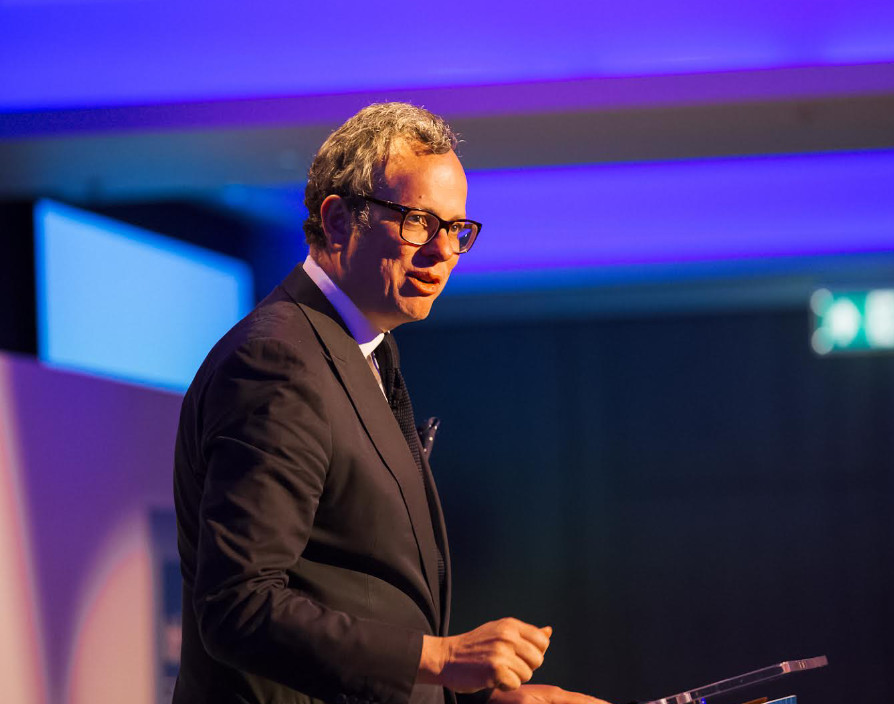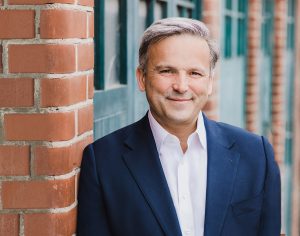Entrepreneur, campaigner and Elite Business Live keynote, Michael Hayman, talks to us about his work with the Small Business Charter and how business can be a force for good in society…
As CVs go, they don’t come much more impressive in the SME sector than Michael Hayman’s.
Get a load of this.
He co-founded the campaigns firm Seven Hills and co-authored the book Mission. He is Chair of the Small Business Charter, the mark of excellence for small business leadership education in UK business schools. He is also Chair of Entrepreneurs at the private bank and wealth manager Coutts.
In addition, he is Honorary Professor of the Purpose Economy at the University of London where he also holds an Honorary Doctorate. Oh, and also an Honorary Fellow in Entrepreneurship at the University of Cambridge Judge Business School.
He co-founded the national campaign for early stage enterprise, StartUp Britain and was awarded an MBE for services to enterprise promotion, entrepreneurship and education.
No doubt he can pat his head and rub his tummy at the same time as well.
Ask him what his day job and he says this: An entrepreneur and campaigner for mission-led businesses.
He states his day to day purpose as being to help people realise their potential and deliver on the promise of business as a force for good in the world.
Developed by the Chartered Association of Business Schools, Lord Young, and the Department for Business, Innovation and Skills (now Department of Business, Energy & Industrial Strategy), the Small Business Charter currently accredits 54 business schools across the UK for playing a strong role in supporting small businesses, local economies and student entrepreneurship.
As Chair, Hayman works to deliver its Help To Grow: Management Course on behalf of the UK government, which is a significant BEIS and Treasury backed initiative. The programme aims to provide 30,000 small firms access to world-class business schools’ expertise on everything from leadership to financial management and marketing. Businesses pay £750 and, in return, receive £7,500 investment from the Government to deliver 50 hours of work with a world class business school.
It also seeks to communicate the value of management education to small firms; and to connect businesses, business schools and government to boost growth, productivity, innovation, and entrepreneurial success through improved management and business practice.
Hayman wants to see business owners clamouring for access to the programme.
He says: At a critical time for business, with the shape of the economy changing to one where many are likely to set up their own firms and make jobs rather than take them, it is more important than ever to support the world class business schools that can assist our aspiring entrepreneurs.
When any founder starts out, the list of things they don’t know is far longer than what they do. I co-founded my business in 2010, and like for so many, the playbook for growth was the one we made up along the way. I want to see every one of the 30,000 places on Help To Grow: Management Course taken in the next few years, to help entrepreneurs write that playbook.
While a lot of entrepreneurs are portrayed in the media as being natural deal-makers and strategists, most with any familiarity with the sector know that it’s more about hard work and a decent measure of luck, as well as good judgement.
Time at the coalface is also vital, says Hayman.
Entrepreneurs aren’t born, they are made by their experiences, and those experiences can be learned. That experience can be learned right the way through life. Whether you start a firm or work in one, the entrepreneurial mindset and skills are valuable life assets. It’s why the commitment does need to be all the way along. The good news is that we are getting better at it. There are more programmes and opportunities for enterprise education than ever before. But these are the first steps on the journey, not the destination.

Hayman values the quest for best – the idea of self-improvement and the value of experience.
You can learn from your mistakes or you can find inspiration in the experience of others. The biggest risk for a founder is not having anyone to learn from and that’s one of the quickest ways for a good firm to go bad. It’s why you need to keep evolving. Or as the poem goes: ‘Better, better, best. Never let it rest. Till your better is better. And our better best.’
Beyond encouraging better training and opportunities for experience, he is also a firm believer in business making a contribution in society for the greater good.
Business can and must be kind. Entrepreneurs can serve the public good and in so doing, build better and more sustainable organisations as a result. Your purpose can drive your profits. Look at the B-Corporations as great examples of this, who outgrow their peers by 34 per cent. Think of them as a twenty first century version of food and Fair Trade ‘ a recognised and verifiable commercial commitment spanning industries and sectors around a common attitude to do better.
But are business leaders, financiers and ‘change makers’ really committed to that change or is it limited to piecemeal efforts?
Again, yes. An increasing number of businesses both large and small see their companies as the means to effect social change. From serving local communities to funding the future. The rise of environment, societal and governance (ESG) issues as a key criteria for investment decisions is now increasingly mainstream and welcome.
Finance leaders like Alison Rose at NatWest, Sir Nigel Wilson at Legal & General, and Larry Fink at Blackrock strike me as great examples of activists leading large firms. However, the challenges to getting to Net Zero, to contributing to social justice and a more inclusive society, are enormous and will require business to be at its best to really make the difference we need.
If you are interested in hearing more of his thoughts on unlocking potential and training future business leaders, you may want to stop by his Commercial Business Growth keynote at Elite Business Live.
Why Knowledge Is Power is the talk I will be giving. It’s often said that fortune favours the prepared mind and my talk will explain why. Why it helps business find its purpose and potential. And why it is your engine for growth.
To view Michael’s keynote session, it takes place on the 10th March @ 09:30 Click here to register so can watch the session for £FREE
Get there early.
“
Share via:








































